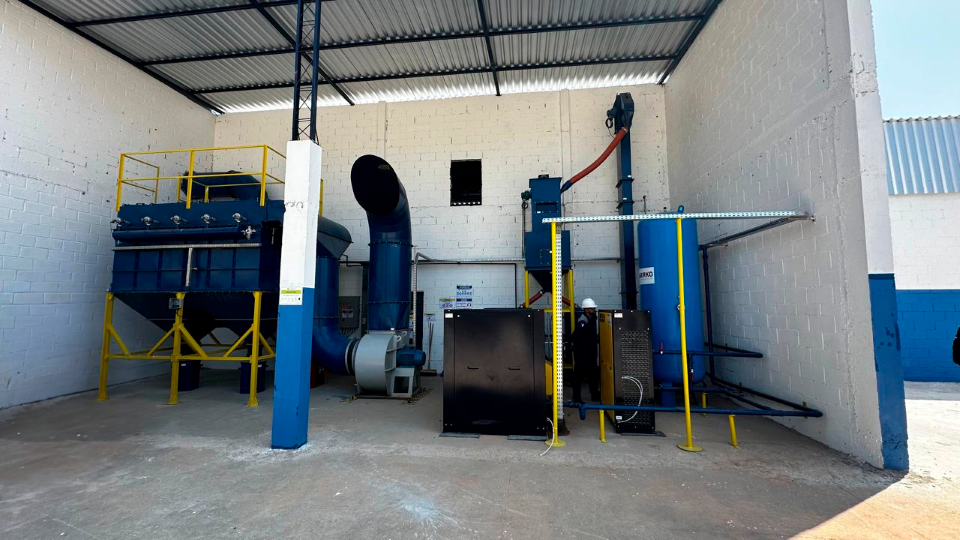In Brazil, Actemium will treat and re-use cleaning solvents

Reduce, re-use, recycle. That is the mantra taught at schools the world over. At Actemium, we strive to make this part of the framework for every decision we take.
All of Actemium’s business units are committed to meeting the group’s environmental targets:
- Reduce scope 1&2 greenhouse gas emissions by 40% between 2018 and 2030 and scope 3 by 20% between 2019 and 2030
- Optimize resources by adhering to the principles of a circular economy
- Preserve natural environments
In Brazil, Actemium Oil & Gas Offshore is setting an example by creating a process that meets all three criteria of that mantra and aligns with our environmental targets.
Actemium O&G Offshore provides maintenance and repair services for oil industry rigs off Rio de Janeiro state. Parts going out to the rigs must be painted to protect them from the elements, and painting necessarily involves using organic solvents to clean the equipment after each job.
Process design: Considering the environment from the start
From the beginning, the new cleaning process was designed to cut waste. Typically in a set-up like this, the paint-contaminated organic solvents would either be sent to a specialised landfill for hazardous waste or disposed of through a co-processing routine – for example, burned to generate additional heat for a cement kiln.
Actemium O&G Offshore chose a cleaner path, building re-use and recycling capabilities into the cleaning process that will eliminate 30 tonnes of CO2 equivalent per year and preserve the environment from potentially harmful emissions. 9,000 kilograms of hazardous waste will be avoided per year, and the process will save 14 liters of solvent per day and 4 cubic meters of water per year.
The option of a more sustainable process has also proven to be more economically viable: recovering the solvent will result in cost savings of as much as 81,000 Brazilian reais (€13,500) per year.
Construction of the new painting facility began in July 2024, and it is expected to be operational by the end of the year.
Recycling reduces the need to create more solvents
Recycling solvents means emissions from their manufacture (they are petro-based) are avoided. Eliminating waste co-processing means fewer pollutants released into air, soil, and water. It sounds so simple, but re-use cases like this one are crucial in the move to a more circular economy.
We examined this operation for ways to make it more friendly to the environment. Re-using the solvent quickly emerged as the best way to make rapid progress on this front — what is good for the planet is ultimately good for business.
said Samuel Ferreira, Area Director of Actemium O&G Offshore.
Congratulations to Actemium O&G for this smart initiative!
